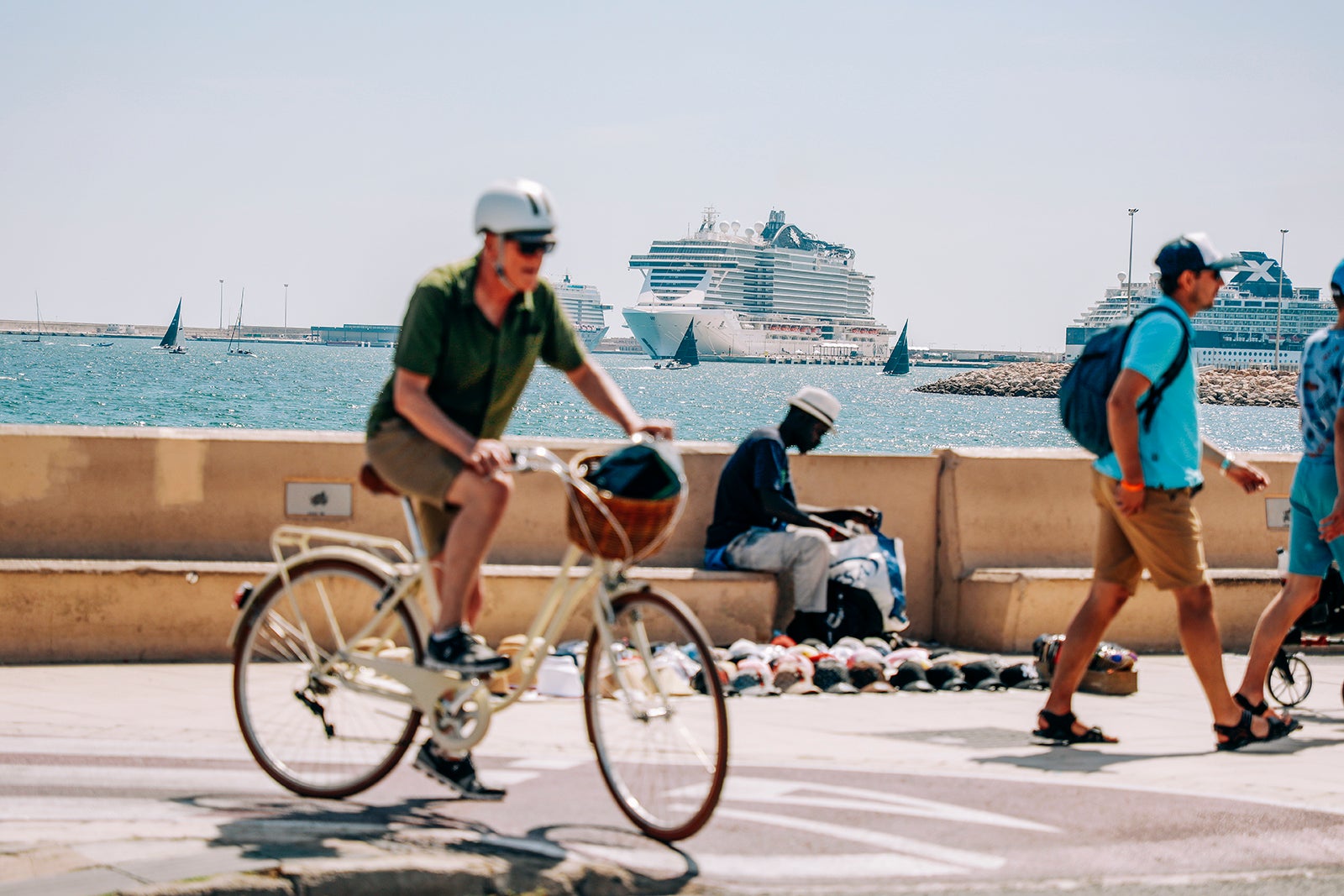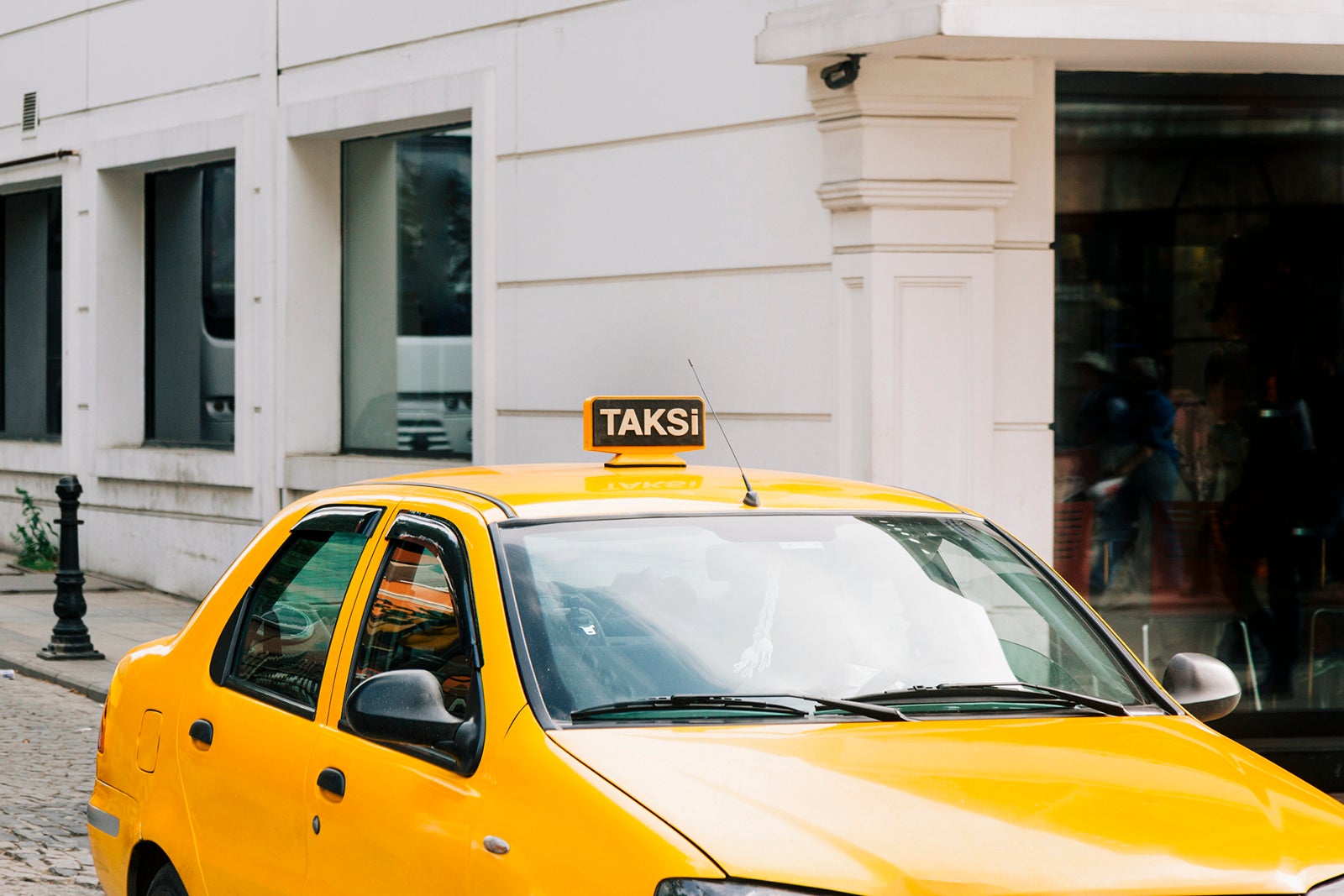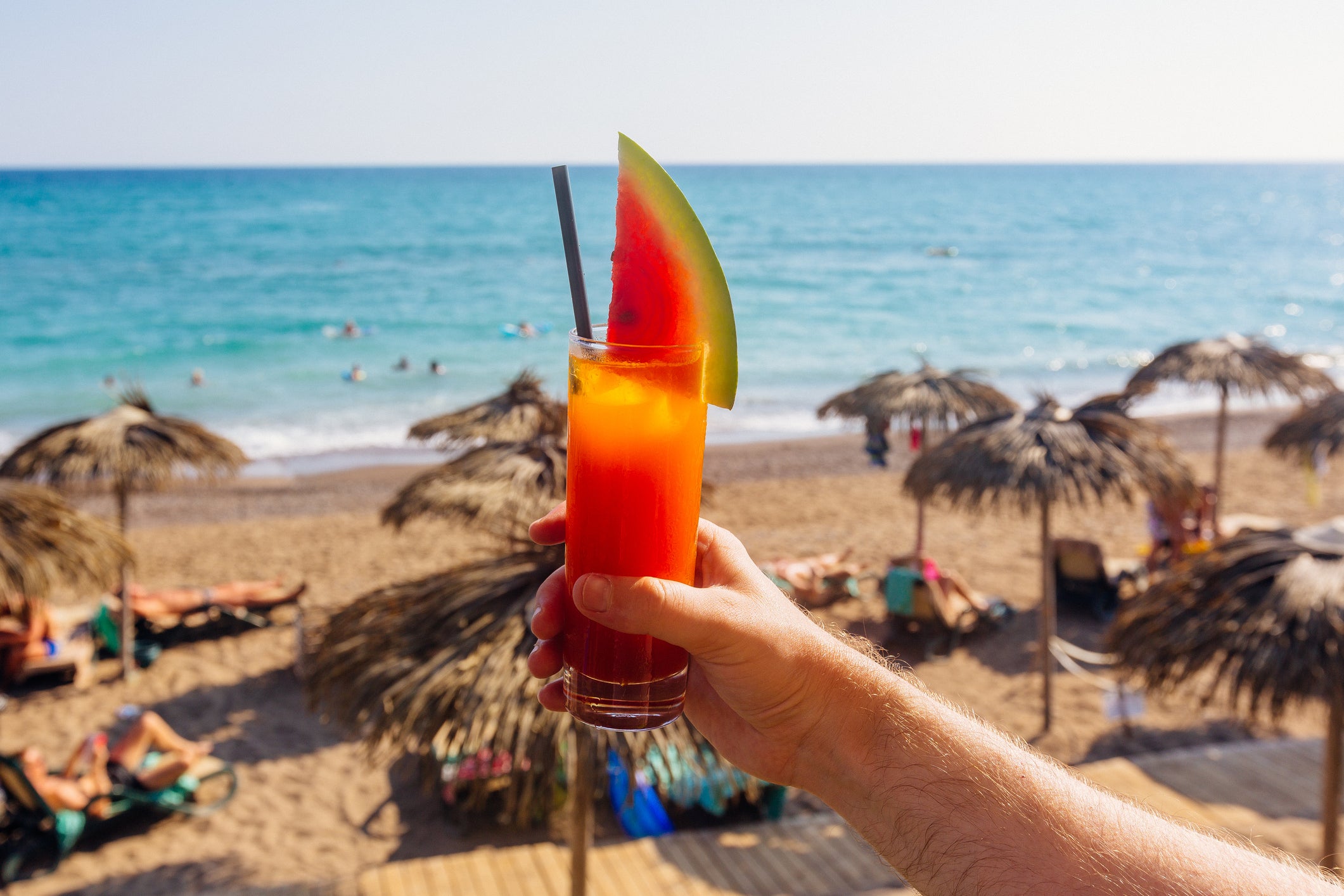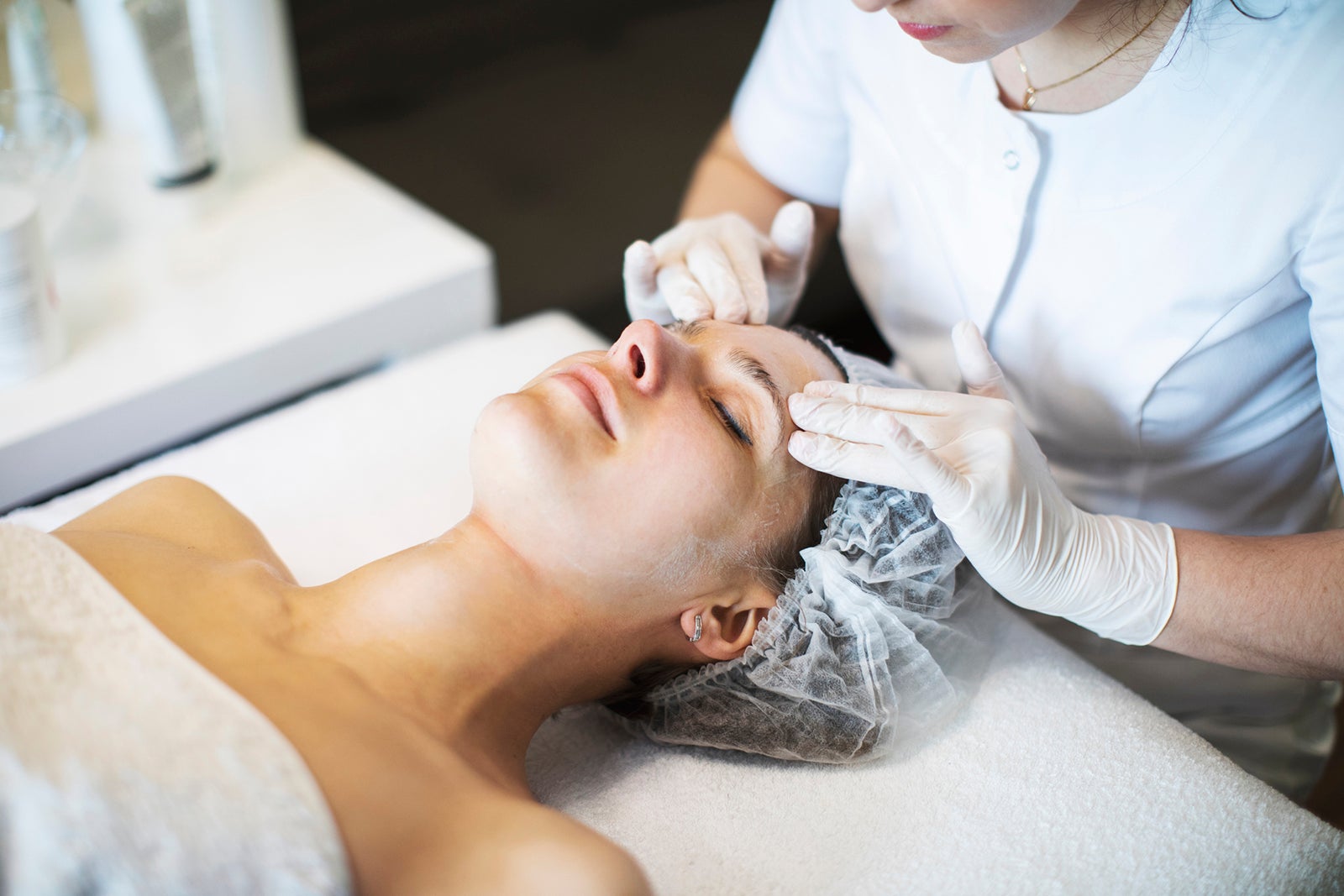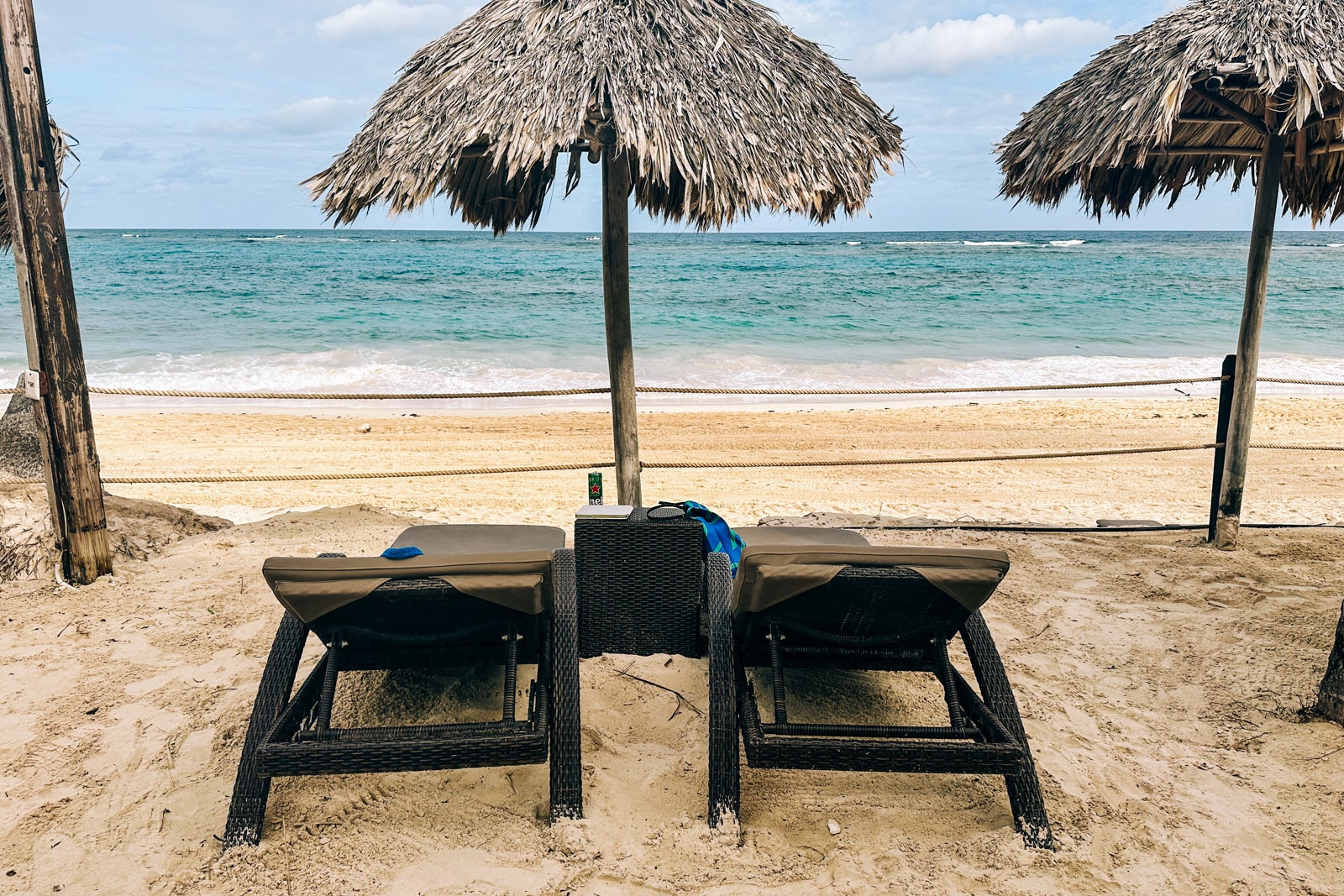Cruise port scams and schemes: Here’s how to avoid them
When Harry B. and his wife boarded Royal Caribbean‘s Freedom of the Seas, they were looking forward to a relaxing tropical getaway. Buying $10,000 of skincare products definitely wasn’t part of the plan, but that’s exactly what Harry inexplicably did when the cruise ship made a port stop in the Bahamas.
Harry — whose last name I’m concealing because he is highly embarrassed about what happened and believes he is a victim of a crime — suspects that to convince him to buy all that stuff, the merchant must have spiked the cocktails that were served to him with drugs.
However, as a consumer advocate who has fielded thousands of complaints from travelers with postvacation buyer’s remorse, I suspect something a little less sinister as the culprit.
I call it … vacation brain.
Travelers often let their guard down during vacation, doing things they would never consider doing at home. For example, they impulsively buy high-ticket items without any real knowledge of the product they’re purchasing.
Unfortunately, scammers and schemers know this, and when they see those big cruise ships sailing into port, they’re at the ready.
So, cruise ship passengers, you had better be ready for them, too.
Here are the latest schemes and outright scams that cruise ship passengers need to be aware of when disembarking their ship during a port of call.
A ‘free’ gift during your cruise port visit
Take a stroll down any shopping area during your port visit, and you will likely be offered a free bracelet or other little bauble. The lure of a complimentary trinket is often how a legitimate or not-so-legitimate jewelry outlet will get a cruise ship passenger into the showroom.

Daily Newsletter
Reward your inbox with the TPG Daily newsletter
Join over 700,000 readers for breaking news, in-depth guides and exclusive deals from TPG’s experts
If you accept that free bracelet and go inside, you’ll be handed off to a salesperson who practices his or her sales craft thousands of times per week. These folks see cruise ships as a supply ship of potential customers.
You’ll be greeted with friendly banter and then bombarded with high-pressure tactics aimed at getting you to purchase a piece of jewelry to “commemorate” your trip. The salespeople know their time with you is limited, so the pitch will have a sense of urgency and the jewelry you’re eyeing will likely be “limited quantity.”
Many cruise ship passengers are completely unprepared for the hard sell and find it difficult to extricate themselves from these stores without buying something.
Related: The biggest mistakes cruise ship passengers make on port days
This particular scheme is not a scam, necessarily. Many reputable jewelry stores operate in cruise ports around the Caribbean, a region known as a great place to buy duty-free jewelry.
The problem occurs when cruise ship passengers are dazzled in the moment by the beautiful jewelry and the charming salesperson — and end up spending money that wasn’t in their budget. After the deal is done and the traveler is back on board the ship, the dazzling light dims, and buyer’s remorse sets in.
How not to get scammed: If you’re not in the market to buy jewelry during your cruise, do not accept any free bracelets or other trinkets. No merchant wants to give you something for free. They want to subject you to a high-pressure sales routine. Just keep walking and buy a bracelet for $1 at the local market instead.
If you are in the market to buy jewelry during your cruise, make sure to research the merchant and the type of gems you’re interested in beforehand. Additionally, set a budget and stick to it no matter how hard the sales pitch becomes.
The discount excursion scam
If you’ve disembarked from your cruise with no real plans for your day, you’re a prime target for an excursion scam.
This type of scheme involves a friendly person typically in a temporary kiosk or operating out of a storefront. He or she will tell you about an exciting adventure hosted by a local person. This type of excursion costs much less than the ones offered by your cruise line, but there is a different price to pay.
On this excursion, your driver will take you to places where he will receive a commission for bringing you there. Invariably, you’ll arrive at a private factory for a tour of the facility. The goal is to get you to spend your money buying whatever product is being made there. Many cruise ship passengers report making purchases just so the tour will end.
When you finally are taken back to the port, hopefully in time to make your ship’s embarkation, you’ll be frazzled and short on cash with a lot of unexpected trinkets.
Related: Cruise scams: Why you should toss that ‘free cruise’ card in the trash
How not to get scammed: It’s always a good idea to use a reputable tour seller, such as Viator, to check what kind of non-cruise-line-sponsored excursions are available in your port of call before disembarking. You’ll be able to read reviews from real people who have already taken the tours listed there and see the cost as well.
If you decide after you’ve already left the ship that you would like to take an excursion, visit the tourism information booth that will most likely be located somewhere close to the pier. You will want to make certain that you’re booking a tour from a legitimate, licensed company.
The one thing you don’t want to do is to book an excursion on the fly from someone who approaches you on the street. This is almost always an error you will regret later — after you return from your factory tour.
Can you hold this for just a second?
Many tourists around the world have been confused by a stranger on the street who needs help to hold something for “just a second.” These scammers — and yes, these are outright scammers — mean to confuse their victims and act as though there is a legitimate reason for victims to hold their shell or other item. Once that thing is in the victim’s hand, they’re fully involved in the scam.
Next, the stranger tells the victim how much they owe him or her for the item they’re holding. The victim’s protestations will only lead to the scammers reiterating that they bought the item. Some cruise ship passengers have even reported being threatened by the formerly friendly person when they didn’t hand over some cash.
How not to get scammed: Never take any item offered to you by a stranger. In the Bahamas, the item is often a giant conch shell, but I’ve seen other scammers who offer smaller shells, tree branches and other odd detritus. It doesn’t matter what the item is — it’s just a scheme to extract money from you.
Related: The most common travel scams in Europe — and how to avoid them
Unofficial, unmetered taxis
Yet another pitfall for cruise ship passengers to avoid during a port stop is using unmetered taxis.
Often cruise ship passengers disembarking from their ship want to quickly leave the crowded port area and explore. Their goal is to see the best the destination has to offer. But some of the cars waiting have a different goal.
Tourists should never get in unofficial, unmetered taxis.
I can think of multiple reasons why it is unsafe to hop into an unvetted car with a stranger in your port of call. First, that person might not even be licensed to drive a vehicle, much less a taxi. It is not unusual for unlicensed drivers to be operating in the Caribbean. You’re risking your life if you get into an unofficial taxi.
Beyond that safety issue, the driver of an unmetered taxi likely has a goal of taking you for a ride — financially. Cruise ship passengers report traveling in circuitous routes to make it appear as if they’ve been driven long distances, when in reality they haven’t gone far at all. The cost you’ll be charged in the end will reflect your lengthy journey.
Of course, these types of shenanigans can also occur with a metered taxi — although a legitimate cab driver is likely less willing to risk his or her job over a few extra bucks. Still, it’s always wise to have an idea of where you’re going and what you should expect to pay to get there and to confirm all prices before you take off on your drive.
How not to get scammed: To protect your safety and your wallet, always use an official transportation service. These usually have some type of placard or license on display, depending on your location. If you’re not sure what an official taxi looks like at your destination, you can stop by the tourism booth and check before getting into any car.
A free cocktail and a fabulous travel club
Many confused and distraught consumers have contacted me after coming home from a trip with a pricey travel club membership they don’t actually want. That’s always a disturbing situation because a consumer advocate can’t do much if a traveler has signed a legally binding contract in a foreign country.
This scheme usually involves a legitimate travel club company that sends its scouts down to the cruise port to collect potential “victims.” The lure in this scheme is a free day pass to a beautiful resort, drinks, food and fun during the passenger’s visit.
Cruise ship passengers are scooped up from the port and transported to a tropical paradise.
There is, of course, a catch. While sipping numerous cocktails and suffering from that vacation brain I mentioned earlier, cruisers are required to attend a travel club presentation. That’s where things go all wrong. Many booze-filled tourists have found themselves signing a travel club contract at the end of that presentation.
Related: Avoid these mistakes when booking cruise shore excursions
Unfortunately, once they sober up, they don’t want the travel club, but they’ve signed a legally binding contract. And they’re stuck because, unlike in the U.S., where consumers typically have at least a three-day grace period to rescind their membership, many travel club and timeshare contracts abroad have none. Once the contract is signed, the deal is done.
How not to get scammed: Before accepting a free day pass anywhere, make sure that you understand what your obligation is in exchange. If you can’t resist a hard sell, don’t go. Travelers who come home from vacation with the burden of a surprise unwanted travel club have flooded my helpline for years.
Never sign a contract for anything after you’ve had even one cocktail. If a salesperson presents you with a contract after you’ve been served one or more drinks, jolt yourself into reality. If you think you might be interested, ask for a copy of the details so you can take that document with you and do your research later. If the company refuses and tells you the deal is only good if you sign it right, then decline and ask to be taken back to the port.
A free facial and an unexpected $10,000 purchase
This brings us back to Royal Caribbean passenger Harry, who paid $10,000 for questionable skincare products.
The free facial scam is a well-known scheme around the world. “Facialists” will lure you into their facilities with the promise of a free treatment. Once you accept that offer, you’ll be alerted that your face has a lot of problems. But no worries! They can sell you an amazing product that will be able to fix it all.
In Harry’s case, he says a salesperson practically dragged his wife inside the store.
My wife and I fell victim to this well-orchestrated scam of high-pressure sales beginning with the handing out of free skin treatment samples in front of the store. I resisted, but they grabbed my wife by the hand and offered her a 10-minute face treatment. I followed her in so she wouldn’t get suckered into buying anything. They began applying the product while also pouring us what was supposed to be Champagne. To try to escape the gathered group of salespeople hyping the effectiveness of the product, I reluctantly agreed to a $200 purchase.
But that was only the beginning of this port-of-call fiasco. Now the salespeople knew they had their victims nibbling on the hook.
Related: Things you should never buy on a cruise ship (or in port)
As the alcohol continued to flow, they brought out additional products, which they told Harry would cause his bald head to sprout hair. He told me he realizes how ridiculous this sounds now, and that’s why he suspects it wasn’t just Champagne in his glass.
“We were then given hard alcohol and, I think, drugs. The heavy hitter deal closer brought out a light wand device that was purported to enhance the skin treatment. To make a long story short, by the time we left, with this special deal we were given, we had a $10,000 charge on two credit accounts.”
The dazed and confused couple gathered the bags filled with all the items and made their way back aboard Freedom of the Seas.
Harry says they shared their experience with their adult children on the ship but did not report their suspected drugging to Royal Caribbean. They did make a formal complaint to the cruise line several weeks later.
That delay in reporting this scam was a mistake. By then, any evidence of misdeeds by this “merchant” was gone, and Harry had taken all the products home, even though he didn’t want any of the lotions or the magic wand device. Predictably, his bald head hadn’t grown any hair and his wife’s appearance didn’t undergo a miraculous change. None of the products did anything they were supposed to do.
The $10,000 bill, though, was very real.
Since that day, Harry has tried every possible way to get a refund for what he believes to be over-the-counter face cream. He filed a credit card dispute, which Chase rejected based on the fact that he received everything that he purchased that day. The receipts read “nonrefundable and all sales are final.”
Next, he filed a complaint with the Florida attorney general claiming elder abuse by this merchant. Of course, the Bahamas is not under the jurisdiction of any U.S. attorney general, so that complaint went nowhere.
Finally, Harry reached out to me in the hopes that I might be able to convince Chase to reverse the charge. He also suggested that other government organizations in the U.S. should investigate this merchant.
I explained to the frustrated couple that U.S. law doesn’t apply in the Bahamas, and the nonrefundable terms and conditions of the skincare products make the sale final. Chase can only reverse the charge if the products weren’t received, and that isn’t the case here. Harry walked out of the store with exactly what he agreed to buy.
Bottom line
Unfortunately, some “vacation brain” mistakes are irreversible, and Harry’s is one of them. He hopes others can learn from his awful situation and avoid making the same errors he did.
Visiting a variety of ports during your cruise is fun and exciting, but the quickest way to ruin your vacation is to fall victim to a scam or to unexpectedly spend thousands of dollars on things you didn’t intend to buy. Prepare yourself for the most common scam tactics, and you’ll likely avoid being fooled by schemers.
Have a problem with a cruise line, airline, credit card, car rental company or vacation rental agency? Send your request for help to ombudsman@thepointsguy.com, and I’ll be happy to investigate and help you if I can.
Planning a cruise? Start with these stories:

